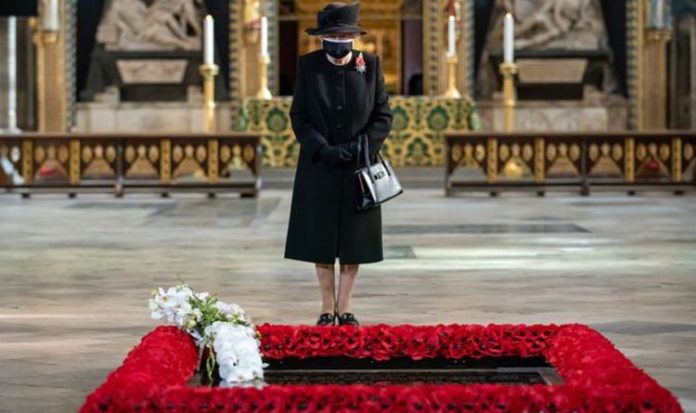Those supporting the call include more than 6,000 members of the Western Front Association, Lord Ashcroft, owner of the worlds biggest private collection of VCs, and historians. “Now, as we commemorate the centenary of the Unknown Warrior, is the time to address this injustice and bestow our highest honour on what is our ultimate symbol of National sacrifice,” said Tony Bolton, chairman of the Western Front Association last night. The idea for a tomb to an anonymous warrior was first suggested in 1916 by the Rev David Railton MC, an army Padre awarded the Military Cross for saving the lives of two soldiers and an officer under heavy fire in France. Though he received no response from Gen Lord Hague, he persisted and in 1920, inspired by the newly created Cenotaph, tried again, this time writing to the Dean of Westminster Bishop Ryle.
The butcher’s bill had been high, with at least 970,000 British soldiers, sailors and aviators killed during the bloody onslaught that was the First World War and three million civilians losing a close relative, and the Dean of Westminster agreed that it should be in Westminster Abbey.
After some pressure on King George V by PM Lloyd George it was decided to dispatch Brig General Louis John Wyatt, Commander of British forces in France and Flanders, to a small chapel in St Pol where four bodies lay on stretchers, each covered by Union flag.
Each belonged to an unidentified soldier killed in action in the blood-soaked battlefields of the Somme, Aisne, Arras and Ypres.
Strict conditions meant that even those who brought the bodies to St Pol should leave before Gen Wyatt arrived, to ensure there would be no possibility of diluting the strict anonymity that was required,
The idea soon became adopted by other counties, including France, Italy, Belgium, Canada , New Zealand, Australia and the US. Unlike Britain, they refer to the Unknown Soldier because they had no navy or air power in the original conflict.
Campaigners last night pointed out to the fact that Britain has bestowed a VC to the US’ Unknown Soldier following the decision by General John Pershing, who commanded American Expeditionary Forces on the Western Front, to grant the Unknown Warrior America’s highest award, the Congressional Medal of Honor, in 1921.
“The precedent is there,” said historian Richard Pursehouse, author of Prisoners on Cannock Chase: Great War PoWs.
“If we are able to award the Victoria Cross to the US’ Unknown Soldier, surely it is fitting that it is awarded to our own?”
Lord Ashcroft, owner of more than 200 Victoria Crosses, acknowledged concerns to that such a move would devalue a medal usually bestowed for individual acts of heroism, but dismissed them.
“The VC is arguably the most prestigious gallantry medal in the world and should not be awarded lightly or its standing will be devalued,” he said last night.
“However, I do believe that it would be a wonderful gesture to mark the centenary of the Tomb of the Unknown Warrior by awarding him the VC, provided the Queen and our military leaders also consider this to be an appropriate measure.”
Special plans to commemorate the centenary have been scrapped due to the Covid -19. A steam train was to have a special carriage to replicate the original journey from Dover to Victoria Station where, in 1920, it was given an overnight honour guard before proceeding to Westminster Abbey by gun carriage the following day.
Instead, a small socially- distanced ceremony will be held at Dover on Wednesday, and , while there will be no parade in London, a service of remembrance at Westminster Abbey has been exempted from lockdown rules, Victoria Cross hero Johnson Beharry and George Cross recipient Chris Finney will represent the military.
“There is a groundswell of support among our members that this injustice should be rectified,” said Tony Bolton.
“The Unknown Warrior is extremely significant. It recognises the huge numbers of casualties and deaths that Britain suffered, – nearly a million.
“But because the decision was taken not to repatriate bodies, the tomb offered the only form of closure to the millions of widows and orphans who would otherwise have had nowhere to turn.
“And, of course, this applied right up to and including the Falklands conflict.
“It is right that we bestow on it the same honour which we have bestowed on the Unknown Soldier in Arlington, Virginia.”







